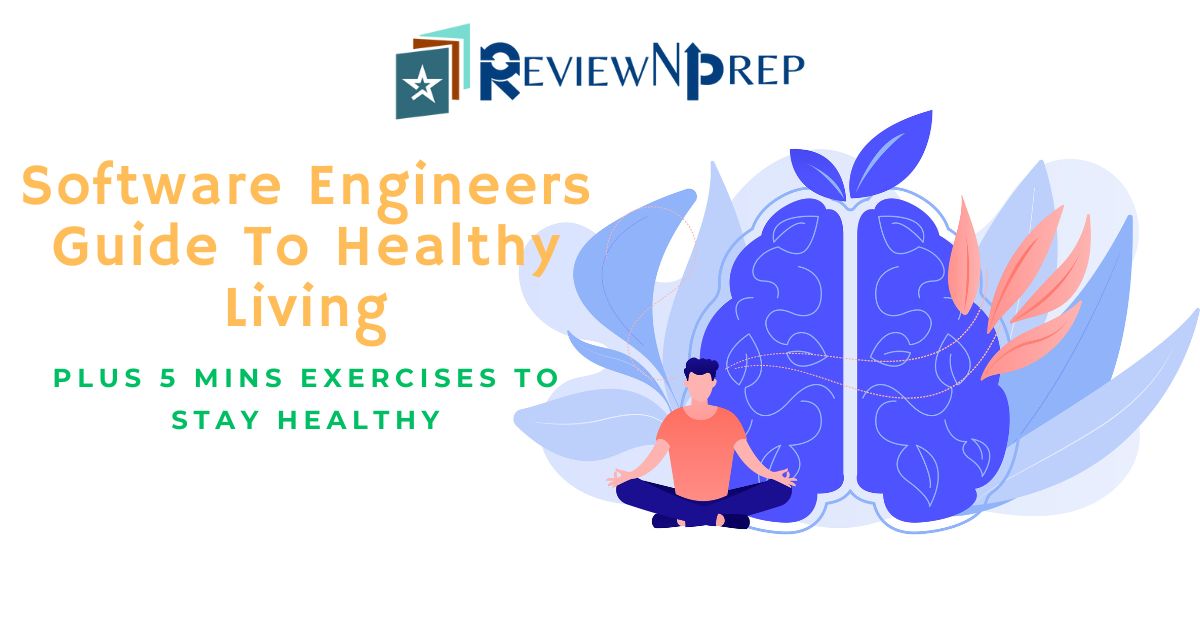|
|
Software engineering is a highly demanding profession that requires intense focus, long hours of sitting and coding, and constant adaptation to new technologies and methodologies. While many developers thrive in this fast-paced environment, the pressure can take a toll on their mental and physical health if they don’t take care of themselves properly. Research suggests that depressive symptom is the most frequent mental complaint among software engineers.
In this blog, we’ll explore why it’s important for software developers to prioritize their mental and physical health and some strategies they can use to maintain their well-being.
Table of Contents
Ways to Improve Mental Health
- Avoid Burnout: The intense pressure of deadlines and workloads can lead to burnout, which can cause physical and emotional exhaustion, decreased motivation, and decreased productivity. Research suggests that overtime work is often associated with physical and mental complaints. Taking breaks, setting boundaries, and practicing self-care are crucial for preventing burnout.
- Manage Stress: Software development can be a stressful job, especially when dealing with difficult bugs or critical errors. Finding healthy ways to manage stress, such as meditation, exercise, or therapy, can help maintain mental wellness and prevent burnout.
- Practice Work-Life Balance: Maintaining a healthy work-life balance is essential for mental well-being. Research suggests that socialization not only helps with lowering the risk of dementia, but also promotes a sense of safety, security and belonging. Making time for hobbies, socializing with friends and family, interacting with pets, and taking regular breaks throughout the workday can help reduce stress and prevent burnout.
- Seek Support: It’s important to remember that seeking support is not a sign of weakness. Whether it’s talking to a friend, a therapist, or a support group, having a support system in place can help manage stress, improve mental health issues, and prevent burnout.
Ways to Improve Physical Health
- Exercise Regularly: Regular exercise can help improve physical health, reduce stress, and boost mental wellness. Incorporating physical activity into your daily routine, whether it’s going for a run or taking a yoga class, can have a positive impact on overall health and well-being and improve quality of life.
- Take Breaks: Sitting at a desk for long hours can be detrimental to physical health. Taking regular breaks throughout the workday to stretch, walk around, or practice some simple exercises can help prevent fatigue, reduce the risk of repetitive strain injuries, and improve overall physical health.
- Get Enough Sleep: Getting enough sleep is crucial for both physical and mental health. Furthermore, several studies also mention the relationship between sleep disorders and social media use in bed before sleep as it may cause cognitive stimulation diminishing ability to mentally shut down as blue light produced by electronic devices disturbs falling into sleep. Making sure to get at least 7-8 hours of sleep each night can improve focus, productivity, and overall well-being.
- Eat Healthily: Eating a balanced and nutritious diet is important for maintaining physical health. To begin with, cut down on unhealthy snacking, excessive caffeine and sugar laced soda. Fueling your body with healthy food can help improve energy levels, reduce stress, and improve overall health and well-being. Meal preps can help in healthy eating.
5 minutes Exercises
Not having enough time for exercising is always an excuse that is presented by software developers. The issue is prioritization! Remember for your brain to function at its peak, you need to take care of your body.
For busy software developers, here are five exercises that can be done at home in just five minutes:
- Deep Breathing: Sit comfortably with your eyes closed and take a deep breath through your nose, filling your lungs with air. Hold the breath for a few seconds, then slowly exhale through your mouth. Repeat this process for five minutes, focusing on the sensation of the breath as it enters and leaves your body.
- Yoga: Yoga is a great way to reduce stress and improve flexibility. A simple yoga sequence, such as the Sun Salutation, can be done in just five minutes. Begin by standing with your feet hip-width apart and raising your arms above your head. Then, bend forward from the waist and place your hands on the floor, stepping back into a plank position. Lower your body to the floor, then lift your chest into a cobra pose. Push back into downward-facing dog, then step your feet forward and stand up, raising your arms above your head once again.
- Progressive Muscle Relaxation: This technique involves tensing and relaxing each muscle group in the body. Sit or lie down in a comfortable position and begin by tensing the muscles in your feet, then releasing the tension. Move up through the body, tensing and releasing each muscle group until you reach your head.
- Walking: Going for a quick walk is an easy way to reduce stress and increase physical activity. Put on some comfortable shoes and walk briskly for five minutes, focusing on the sensation of your feet hitting the ground and the movement of your body.
- Visualization: Sit or lie down in a comfortable position and close your eyes. Visualize a peaceful scene, such as a beach or a forest. Focus on the details of the scene, such as the sound of the waves or the rustling of the leaves. Stay with this visualization for five minutes, allowing your mind to fully immerse in the peaceful imagery.
Conclusion
While it may be tempting to prioritize work over your health, remember that taking care of yourself is essential for achieving long-term success and happiness in your career and personal life. Incorporating exercises into your daily routine can help manage stress and improve overall well-being. Remember, taking just five minutes for yourself can have a positive impact on your mental and physical health.
Image Source – Designed by vectorjuice / Freepik
Further Reading:
Recipe for success in IT field – Important skills you MUST HAVE!!

